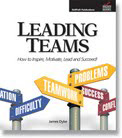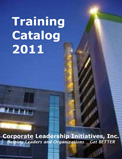H = Hardworking
In this post, we’re going to explore one of the most important qualities of a good hire: the motivation and intention to work with diligence. The last thing leaders want on their teams is an acceptance of low performance as the norm, or an attitude of “how little can I do to avoid getting fired?” Leaders want and NEED hard-working team members who are willing to roll up their sleeves and “Get’r Done!”

Up Close and Personal
At one time during my career, I spent a lot of time working with college students and young adults. As part of their mentoring, I often shared my formula for vocational success:
If you are willing to…
- Be RELIABLE – and show up ON TIME when you are scheduled to show up
- Be HONEST – and not steal from your employer
- Be HARDWORKING – and give an honest day’s labor for an honest day’s work
- Be TEACHABLE – and be willing and able to LEARN…
…You will always have opportunities to work!!!
Organizations need hard-working employees because markets today are so competitive! High productivity is essential in order for businesses to survive. In some industries, it’s even more demanding! For example, in my role as a consultant, I have worked with many organizations that experience a dynamic (and often dramatic) ebb and flow of work; business; orders; demand. Most of these organizations can’t staff for dynamic changes in workload—they need employees who are willing to work harder when the circumstances demand it, in exchange for less stress and pressure when the situation allows.
Ask this question during the interview
How do you know if the candidate sitting in front of you is a hard worker? One expert suggests you ask your potential hire,
What do you think about the possibility of occasional requirements to work late or work on a weekend in order to meet a deadline?
If they hesitate (even the least bit) you may want to reconsider hiring them. If they aren’t willing to work hard occasionally, they probably won’t be working hard in a normal workday! Be sure to also ask anyone who knows them or has worked with them in the past. (I’ll share more ideas about references in a future post. DON’T MISS IT!) Another clue will be how much they apply themselves in the exercises I recommended in my last post.
Ask this question
Did you ever accept a tough, dirty, challenging assignment that no one else wanted? Tell us about that experience—what you did; what you accomplished; and what you learned from it.
Learning is a part of hard work
Managers and supervisors are also looking for team members who have the energy and commitment to learn and grow and get better at their jobs. In today’s fast-moving tech-based workplace, employees are forced to continually learn how to function with ever-changing hardware, software, processes, procedures, and regulations.
In a May, 2021 Harvard Business Review article on-line, consultant Marc Zao-Sanders summarized the current situation for organizations world-wide:
In January 2020 — before Covid had even become a pandemic — the World Economic Forum called for a global reskilling revolution, and firms now require different skills of their workforces, including resilience, adaptability, digital, design, and interpersonal skills.

How do you know if you have a candidate who has the motivation to take responsibility for their learning and growth?
Ask this question during the interview
How do you learn?
Zao-Sanders explains the reason for this question, and what employers need to hear in the answer:
This is not about simplistic learning preferences (such as schedules and modalities) or broadly discredited learning styles (such as being a visual or aural learner). This is about an individual’s personal system for updating, improving, and sharing … [their] knowledge and skills. Does the job candidate you’re considering have such a system?
The hiring manager should look for any of a variety of useful sources for learning and growth that the candidate may employ. In his article Zao-Sanders mentions things like formal training courses, books, people, poems, performance support tools, songs, films, conversations, observations, reflections, memories.
Press the candidate for more details about their learning. Use questions like these:
- How do you go about choosing sources for your learning?
- How do you decide what is most relevant?
- How do you handle information overload?
Then ask them THIS question
Tell me about something you have recently learned—how you applied it in your work; and how you might apply it in the role you are applying for today.
What does this have to do with “hardworking???”
The motivation to commit oneself to diligent work also encompasses a commitment to building skill in the work one does! The two go hand-in-hand. For example, leaders who manage production work are always looking for employees who combine effectiveness with efficiency. These are workers who produce high-quality results in a timely manner. That kind of work shows a commitment to eliminating time-wasting and productivity-killing bad habits and poor use of time.
If you; your organization; or your leaders need help developing effective hiring skills, CALL US! We can help! We can provide high-energy training that will equip your managers and supervisors with the skills they need to find the right people for their teams.
In the meantime, stay tuned to this blog for more techniques that you can use to find and hire great employees for your organization.
Until next time… Yours for better leaders and better organizations,
Dr. Jim Dyke – “The Boss Doctor” ™ helping you to BE a better boss and to HAVE a better boss!


